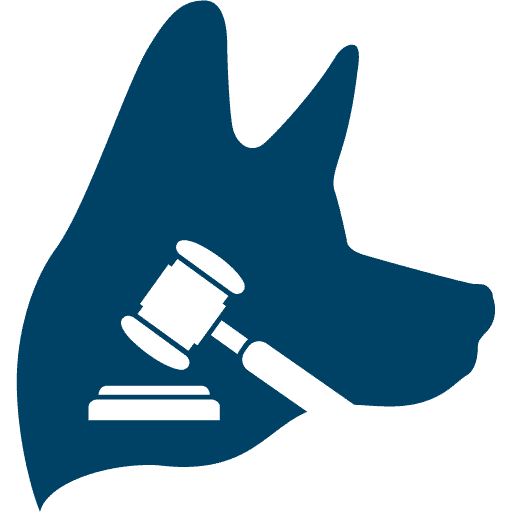Home » Traumatic Brain Injury Lawyer » Colorado TBI Lawyer
Traumatic brain injuries are a life disrupter on a scale most people never see coming. In Colorado alone, nearly 1,000 people die every year from a TBI, and thousands more are left struggling to pick up the pieces of their lives.
If an accident in Colorado left you or someone close to you with a traumatic brain injury, you’re probably wondering how to hold the right people accountable and recover something that resembles justice. A local TBI lawyer is ready to step in, do the legal heavy lifting, and fight for compensation that covers medical treatment, lost wages, and more.
At TopDog Law, our network of Colorado lawyers knows what it takes to handle traumatic brain injury cases. Call (888) 778-1197 today.



Once the dust settles, the reality hits: someone has to pay for the damage. That’s where knowing the types of accidents and injuries, along with the laws that apply, makes a real difference.
Not all traumatic brain injuries happen in high-speed crashes or extreme sports wipeouts. Some occur in everyday situations, with devastating consequences.
Traumatic brain injury isn’t a one-size-fits-all diagnosis. The damage ranges from temporary concussions to life-altering brain damage.
If you’re dealing with a traumatic brain injury claim in Colorado, the laws are clear—but strict. Here’s what applies:
While no two cases are exactly alike, the compensation someone receives falls into three categories: economic damages, non-economic damages, and punitive damages.
Economic damages cover the hard costs—things with a clear dollar amount attached. These are measurable losses with receipts, invoices, and pay stubs to back them up.
Non-economic damages cover the human costs—losses that are real but harder to pin a number on. Colorado law recognizes these, but there are rules.
Colorado courts award punitive damages to punish the defendant and deter similar behavior. They aren’t tied to the victim’s losses but rather to the conduct of the person or company responsible.
Under C.R.S. § 13-21-102, punitive damages in Colorado typically cannot exceed the amount of actual damages awarded unless the conduct continued during the lawsuit or the defendant tried to hide assets.

Colorado’s reputation for adventure comes with a trade-off. Whether it’s the slick sidewalks of Denver or the steep ski runs in Vail, accidents that cause traumatic brain injuries happen more frequently than most people expect. And while some areas of the state see more incidents than others, no corner is immune.
Cities with higher populations—Denver, Colorado Springs, Aurora—predictably report more brain injuries. According to MINDSOURCE Colorado, five counties account for the largest number of TBI-related emergency visits and hospitalizations: Denver, El Paso, Arapahoe, Adams, and Jefferson. These urban hubs see increased risk factors like heavy traffic, construction zones, and crowded public spaces.
Rural areas paint a different picture. Although fewer people live there, the rate of severe and fatal TBIs rises. Remote locations delay emergency care, increasing the chance of death or permanent disability. This study found that TBI mortality rates in Colorado rural regions reach up to 33.8 deaths per 100,000 people—nearly double the urban rate of 18.1.
Outdoor recreation accidents show up in the statistics as well. Skiing and snowboarding injuries are more common in resorts like Breckenridge, Keystone, and Aspen. Mountain bikers tackling downhill runs in places like Crested Butte also make the list. The Colorado Department of Public Health and Environment tracks recreational injuries and reports that winter sports alone contribute to thousands of hospital visits each year, many involving concussions and more severe TBIs.
Certain roads and intersections deserve a mention too. Colfax Avenue in Denver, known for its pedestrian traffic and speeding cars, records frequent vehicle-pedestrian crashes. Similarly, US Highway 285, with its winding mountain stretches and inconsistent lighting, has a history of serious car accidents, some resulting in head trauma.
Insurance companies sell peace of mind, but when someone files a claim after a traumatic brain injury, the gloves come off. Suddenly, the same company that promised to protect them starts finding reasons not to. Most people aren’t ready for the tactics they use—until they’re in the middle of it.
Insurance adjusters have one job: save their company money. After a TBI claim, they waste no time getting to work.
Attorneys who focus on traumatic brain injury cases know these tricks and how to stop them. They counter with evidence—stacking medical records, expert opinions, and clear proof of long-term consequences.
Once the immediate crisis passes, what happens next matters.
Avoid Giving Statements Without a Lawyer: Insurance adjusters sound friendly. They aren’t. Any recorded statement risks harming the case later.

A traumatic brain injury doesn’t just knock you down—it tries to keep you there. But the right lawyer helps you stand up and push back. At TopDog Law, our network of Colorado attorneys knows how to hold the line against insurance companies and fight for real compensation.
Call (888) 778-1197 today. A local lawyer will review your case and explain what comes next—no hassle, no pressure.
